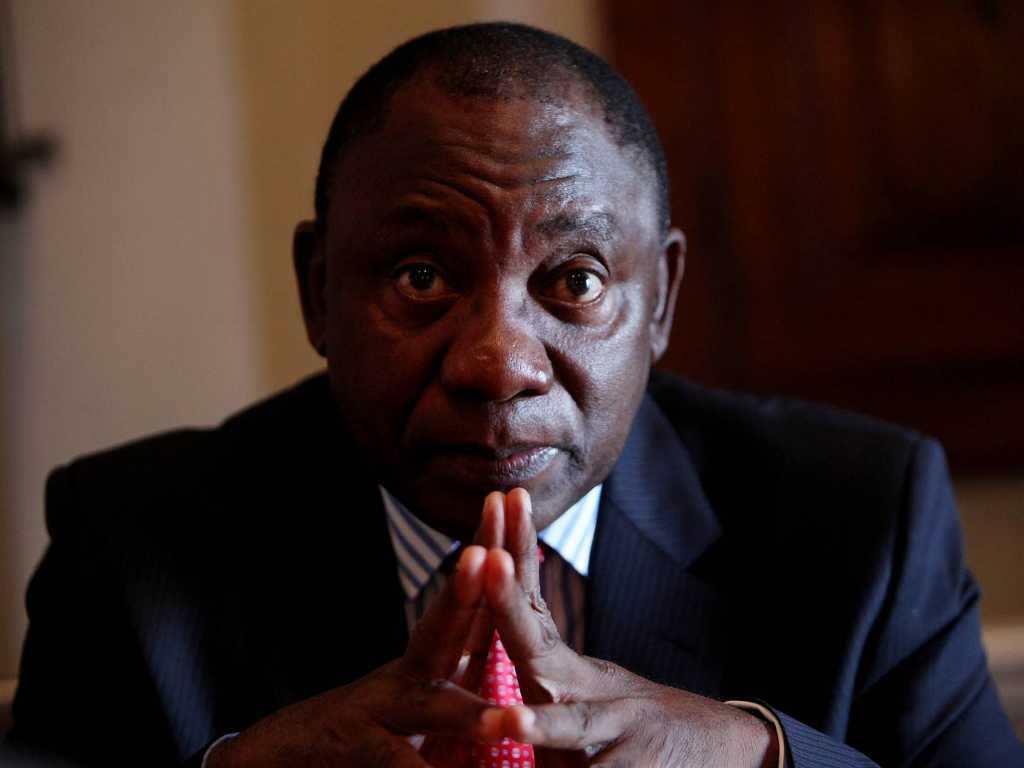SA faces uncertainty as coalition govt looms

EMBATTLED: ANC leader Ramaphosa staring defeat
JOHANNESBURG/LONDON, – The potential formation of South Africa’s first coalition government since the end of apartheid has triggered market jitters, with investors eyeing a possible alliance between the weakened African National Congress (ANC) and the pro-business Democratic Alliance (DA) as a stabilizing factor.
The ANC’s vote share plummeted to slightly 40%, falling far short of a majority. This is the reality that shaping the economic and fiscal trajectory of Africa’s most industrialized nation for the next five years.
“We are right in the area of most uncertainty in terms of what the make-up of the government is going to be,” said Kieran Curtis of asset management firm abrdn in London. “The ANC has been very, very seriously kicked.”
Markets responded swiftly to the election results. The rand weakened by 1.7% from pre-election levels, briefly touching a five-week low on Friday. International bonds lost as much as two cents, with some longer-dated maturities trading below or close to the 70 cents in the dollar mark, below which debt is considered distressed. Additionally, the cost of insuring exposure to South Africa’s international debt spiked to levels last seen in April, as did yields on domestic bonds.
The ANC experienced its worst election showing since coming to power 30 years ago.
The focus now shifts to coalition talks, with investors assessing the implications of various potential partnerships. Possible allies for the ANC include the centre-right Democratic Alliance (DA), the far-left Economic Freedom Fighters (EFF) party, or former President Jacob Zuma’s newly-formed uMkhonto weSizwe (MK) party, which made a surprising strong showing in the ballot.
“The DA obviously is the favorite choice for investors,” said Ray Jyan, London-based portfolio manager at Europe’s largest asset manager Amundi. He added that an agreement on such a coalition could spark a rally in South African assets. “The DA has proven to be very efficient in terms of execution of policies and in terms of anti-corruption as well. They (the ANC, President Cyril Ramaphosa) have a decent plan in terms of reform, the problem is always execution.”
Other combinations could be more challenging for investors. “The reality is if we do end up with an ANC-EFF or ANC-MK (coalition) there will be initial market jitters,” said Mandisa Zavala, head of asset allocation at financial firm Alexforbes in Johannesburg, predicting this could spark an outflow from government bonds and pressure on the currency.
The stakes are high, as the new government will need to address long-term issues, with South Africa’s economic growth averaging just 0.8% since 2012, unemployment among the highest in the world, and persistent power cuts.
Any coalition is likely to bring uncertainty, with investors particularly worried that the concessions involved in forging a deal could lead to increased spending. “Our projections are for debt to continue increasing. If there is a coalition or minority government for which various preferences for spending have to be accommodated, that may result in further spending pressure,” said Dennis Shen, Berlin-based senior director for sovereign and public sector at ratings agency Scope.
“The governability of South Africa may become even more difficult compared to the single-party rule. And that may present risk for the sovereign credit rating,” added Shen, whose firm has a BB rating on the country with a stable outlook.
Another key concern for markets is who will fill the crucial position of finance minister and the independence of the South African Reserve Bank (SARB), a topic of debate within the ANC in recent years. “Any threats to the independence of the SARB or any threats to getting to an overall balanced budget with reduced sovereign debt would also be frowned upon and would be felt firstly in the rand and then ultimately on the ground through diminished foreign investment,” said Craig Pheiffer, chief investment strategist at asset manager Sasfin Wealth in Johannesburg.






